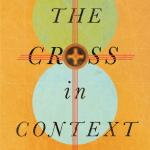We previously considered several studies that highlight the benefits of “broad thinking” on creativity. Scholars note how a “broad perceptual scope” of attention fosters original thinking. Non-Western cultures often have broader “perceptual scopes” but other cultural factors inhibit certain types of creativity.
How might such observations impact contextualization? What do these findings suggest about the value and use of biblical theology? I’ll briefly touch on two points worth discussing.
Contextualization Requires Broad Thinking
Without belaboring the point, I’ll reiterate an idea that I’ve stressed before and at length in One Gospel for All Nations. Robust contextualization requires a broad perspective. We need the broad thinking of a generalist and the collaboration of a team of divergent specialists.
Furthermore, in order to assist us when interpreting ancient texts like the Bible, we should become more conversant with global cultures. There are several reasons for this, but here is one part of the answer.
“… exposure to a foreign culture could help expand the conceptual boundaries established in the individual’s culture, providing inspiration to break free from his/her culture’s limiting sets and initiating the creative reappropriation/synthesis of diverse ideas. One powerful avenue for creativity is the combination of disparate ideas from as diverse categories (a culture can be considered a category) as possible.
Individuals exposed to different cultures have a great likelihood of generating novel or new things through combining different elements from the experienced cultures, which would be perceived as novel by individuals who have experience with only one or some of those cultures.
Culture is believed to indirectly facilitate or impair the fluency of the creative process of idea authoring (i.e., authoring creative ideas) through moderating variables or intervening factors, such as the process of selecting, editing, and marketing new ideas (i.e., how ideas are edited and marketed) and the process of accepting or tolerating creative or novel ideas (e.g., the acceptability of novel ideas).”[1]
Contextualization, done well, necessitates a broader, multicultural perspective rather than a narrow, monocultural lens.
It is this dynamic that motived my writing of Reading Romans with Eastern Eyes and has stirred other writers to deal with it in their books, including Richards and O’Brien’s Misreading Scripture with Western Eyes.
The Broadness of Biblical Theology
This brings us to the subject of biblical theology, which is distinguished from systematic theology. What’s the difference?
In broad strokes, systematic theology begins with the reader’s questions. It then looks at a spectrum of texts on the subject. Systematic theologians synthesize the various relevant verses. On the other hand, biblical theology has a more fundamental starting point. Biblical scholars try to discern the theological categories and problems inherent to the original author within his narrower ancient context.
Where am I going with this?
The methods of biblical theology can push us to consider a broader range of issues that span the canon and forces us to think outside of our cultural milieu. Readers must interact with metaphors and practices that puzzle us or challenge common assumptions.
The interaction of cultural contexts creates the precise conditions that foster creative thinking. Missionaries and theologians desperately need flexible thinking in order to collaborate for the sake of contextualization. We want to understand more of what the Bible says. We seek to discern strategies that will bear greater fruitfulness in ministry.
To do so, we need a “broad perceptual scope” when in diverse cultural settings and when reading Scripture. Various strategies can be found online that help people broaden their cognitive processing, such as taking a 5-minute walk and looking at adjacent subjects to the problem we’re trying to solve.
But there’s another that we shouldn’t miss, and it is this: prioritize the grand biblical narrative and the tools of biblical theology. Beginning with biblical theology is one ingredient that can contribute to such flexible thinking.
[1] “How Does Culture Shape Creativity? A Mini-Review.” May 2019.














